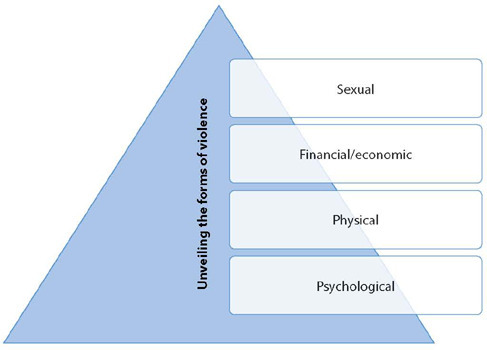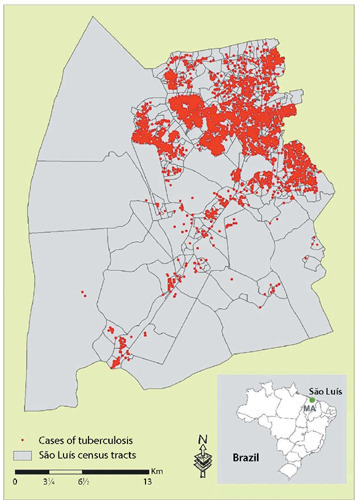-
ORIGINAL ARTICLE06-28-2024
Quality of life at work for health professionals during the COVID-19 pandemic
Revista Brasileira de Enfermagem. 2024;77:e20230461
Abstract
ORIGINAL ARTICLEQuality of life at work for health professionals during the COVID-19 pandemic
Revista Brasileira de Enfermagem. 2024;77:e20230461
DOI 10.1590/0034-7167-2023-0461
Views0See moreABSTRACT
Objective:
to evaluate the quality of life at work of health professionals in direct and indirect care of COVID-19 cases.
Methods:
this was a cross-sectional study with 156 health professionals from a referral hospital. The relationship between sociodemographic and work-related variables and perceived stress and domains of the Quality of Life at Work Scale was investigated using inferential statistics and regression.
Results:
Satisfaction with Compassion was moderate (mean: 38.2), with low perception of stress, Burnout and Secondary Traumatic Stress (means: 18.8, 21.6 and 19.1). There were associations between: education, salary, multiple jobs and direct care with Compassion Satisfaction; low income, being a nurse and working overtime with Burnout; and working more than 12 hours, underlying disease and hospitalization for COVID-19 with Secondary Traumatic Stress.
Conclusion:
quality of life at work was satisfactory, despite the presence of Burnout and Secondary Traumatic Stress.
-
ORIGINAL ARTICLE06-28-2024
Nursing leadership strategies in addressing COVID-19 in light of John Kotter’s framework
Revista Brasileira de Enfermagem. 2024;77:e20230289
Abstract
ORIGINAL ARTICLENursing leadership strategies in addressing COVID-19 in light of John Kotter’s framework
Revista Brasileira de Enfermagem. 2024;77:e20230289
DOI 10.1590/0034-7167-2023-0289
Views0See moreABSTRACT
Objective:
To analyze the leadership strategies of nurses in university hospitals in response to care management changes during the COVID-19 pandemic, informed by John Kotter’s insights.
Methods:
This multicentric study utilized qualitative and analytical methods. It was conducted through semi-structured interviews with 139 lead nurses from 10 university hospitals in Brazil. Data analysis included Bardin’s content analysis and the webQDA software.
Results:
The primary category identified was “Nursing Leadership Strategies in the Battle Against COVID-19,” encompassing five subcategories. This category underscored the importance of strategic vision in nursing leadership for combating COVID-19 within hospital settings, as well as the necessity of working collaboratively with their teams and other healthcare professionals.
Final Considerations:
The results highlight the strategies used by lead nurses in confronting COVID-19, which can be associated with John Kotter’s theoretical framework and his model of change.
-
ORIGINAL ARTICLE06-28-2024
Quality of Care Transition for COVID-19 Patients in a University Hospital in Southern Brazil
Revista Brasileira de Enfermagem. 2024;77:e20230402
Abstract
ORIGINAL ARTICLEQuality of Care Transition for COVID-19 Patients in a University Hospital in Southern Brazil
Revista Brasileira de Enfermagem. 2024;77:e20230402
DOI 10.1590/0034-7167-2023-0402
Views0See moreABSTRACT
Objective:
To assess the quality of care transition from hospital to home for COVID-19 patients.
Method:
A cross-sectional study conducted at a University Hospital in Southern Brazil, involving 78 patients discharged after COVID-19 hospitalization. Data collection was performed via telephone using the Brazilian version of the Care Transitions Measure (CTM-15). Data were analyzed using descriptive and analytical statistics.
Results:
The mean quality of care transition was 70.8 on a scale ranging from zero to 100, indicating moderate quality of care transition. The highest score was attributed to factor 1, “Preparation for self-management,” and the lowest to factor 4, “Care Plan.”
Conclusions:
It is important to enhance communication and support provided to patients during the transition process, especially regarding understanding prescribed medications and the development of clear care plans.
-
REVIEW06-28-2024
Clinical outcomes in newborns of pregnant women with COVID-19: integrative review
Revista Brasileira de Enfermagem. 2024;77:e20230400
Abstract
REVIEWClinical outcomes in newborns of pregnant women with COVID-19: integrative review
Revista Brasileira de Enfermagem. 2024;77:e20230400
DOI 10.1590/0034-7167-2023-0400
Views0See moreABSTRACT
Objectives:
to analyze clinical outcomes in newborns of pregnant women with COVID-19.
Methods:
integrative review conducted in PubMed, Web of Knowledge, SCOPUS, CINHAL; 2,111 studies were obtained, and 8 articles comprised the final sample.
Results:
clinical outcomes in neonates of pregnant women positive for COVID-19 were classified according to the following categories: a) contamination by COVID-19, reported in 62.5% of the studies; b) hospital discharge due to improvement, mentioned in 37.5% of the articles; c) death, representing rare cases in 25% of the sample. The most prevalent gestational complication was prematurity, mentioned in 75% of the studies. This complication has been observed due to cases of premature rupture of membranes and placental abruption.
Conclusions:
despite the knowledge of asymptomatic and mildly symptomatic behavior in neonates, it is important to continue the search for new clinical data, as this public has uncertain reactions to SARS-CoV-2 infection.

-
ORIGINAL ARTICLE06-17-2024
Website for families of non-breastfed children: development and validation of content and interface
Revista Brasileira de Enfermagem. 2024;77(3):e20230490
Abstract
ORIGINAL ARTICLEWebsite for families of non-breastfed children: development and validation of content and interface
Revista Brasileira de Enfermagem. 2024;77(3):e20230490
DOI 10.1590/0034-7167-2023-0490
Views0See moreABSTRACT
Objectives:
to develop and validate the content and interface of a guidance website to support families in promoting Food and Nutrition Security for children under six months who are not breastfed.
Methods:
methodological study, Knowledge Translation, in two stages of creation: 1) content and validation on the criterion of accuracy in a panel of experts; 2) interface and validation on the criteria of content, language, illustrations, layout, motivation, culture and applicability.
Results:
the “Milky Way” website is freely available: . The content was structured in a decision tree made up of types of milk: milk formula, whole cow’s milk and powdered milk; and utensils: bottle, cup and measuring spoon. There were 46 illustrations to elucidate the content, facilitate understanding and engage the target population. The Content Validity Index was 0.91.
Conclusions:
the website is a validated technology with evidence-based written and pictorial content translated for use with families.

-
ORIGINAL ARTICLE06-17-2024
Quality of life associated with nursing professionals’ individual resources and work
Revista Brasileira de Enfermagem. 2024;77(3):e20230476
Abstract
ORIGINAL ARTICLEQuality of life associated with nursing professionals’ individual resources and work
Revista Brasileira de Enfermagem. 2024;77(3):e20230476
DOI 10.1590/0034-7167-2023-0476
Views0See moreABSTRACT
Objectives:
to assess the physical and mental components of nursing professionals’ quality of life and associate them with individual, health and work characteristics.
Methods:
cross-sectional research, with nursing professionals from a university hospital in São Paulo. Own questionnaire and validated instruments were applied.
Results:
the overall quality of life was compromised. The physical component was lower in relation to low family income and among those who perceived greater control/pressure at work, and better for those who practiced physical activity and had support of leader and organization. The mental component was lower in professionals who reported dissatisfaction with work, worse self-rated physical health and were older. Scores for both components reduced due to work-related illnesses, worse work ability and increased daytime sleepiness.
Conclusions:
quality of life was statistically associated with controllable institutional factors and individual resources that, except age, can be promoted.
-
ORIGINAL ARTICLE06-17-2024
Giving meaning to internalized violence throughout life by older adults living in rural areas
Revista Brasileira de Enfermagem. 2024;77(3):e20230163
Abstract
ORIGINAL ARTICLEGiving meaning to internalized violence throughout life by older adults living in rural areas
Revista Brasileira de Enfermagem. 2024;77(3):e20230163
DOI 10.1590/0034-7167-2023-0163
Views0See moreABSTRACT
Objectives:
to understand the meanings of violence internalized throughout life by older adults living in rural areas.
Methods:
a qualitative study, anchored in the Symbolic Interactionism theoretical framework and the Grounded Theory methodological framework in the constructivist aspect. Data collection occurred through individual interviews. Data were coded using the Atlas.ti software.
Results:
it was possible to identify that the context of rural areas strengthens patriarchy culture as well as contributing to violence silence and naturalization. It was also found that violence is a product of social inequality and gender inequality.
Final Considerations:
older adults living in rural areas internalized the violence suffered in a unique way, and this scenario’s specific aspects can increase intra-family abuse, as there is a patriarchal culture that promotes social and gender inequality.

-
ORIGINAL ARTICLE06-17-2024
Social protection in areas vulnerable to tuberculosis: a mixed methods study in São Luís, Maranhão
Revista Brasileira de Enfermagem. 2024;77(3):e20230428
Abstract
ORIGINAL ARTICLESocial protection in areas vulnerable to tuberculosis: a mixed methods study in São Luís, Maranhão
Revista Brasileira de Enfermagem. 2024;77(3):e20230428
DOI 10.1590/0034-7167-2023-0428
Views0See moreABSTRACT
Objectives:
to analyze the risk areas for tuberculosis and the influences of social protection on the development of treatment for the disease in the municipality of São Luís, Maranhão.
Methods:
this is explanatory sequential mixed method research. In the quantitative phase, the data were obtained from the Notifiable Diseases Information System from 2010 to 2019, with georeferencing being carried out to identify areas vulnerable to tuberculosis. In the qualitative phase, semi-structured interviews were carried out with individuals who received social benefits.
Results:
7,381 cases were geocoded, and, from the purely spatial scanning analysis, it was possible to identify 13 spatial clusters of risk. As for the interviews, there was a positive relationship between patient improvement and receiving benefits.
Conclusions:
geographic space and social determinants are relevant for reorienting monitoring actions for the conditions that generate the health-disease process.

Search
Search in:
Nuvem de Tags
Adolescente (85) Atenção Primária à Saúde (239) COVID-19 (91) Criança (91) Cuidados de Enfermagem (269) Educação em Enfermagem (151) Educação em Saúde (139) Enfermagem (930) Enfermagem Pediátrica (86) Estudantes de Enfermagem (77) Estudos de Validação (131) Família (87) Idoso (208) Promoção da Saúde (99) Qualidade de Vida (104) Saúde do Trabalhador (86) Saúde Mental (145) Saúde Pública (82) Segurança do Paciente (150) Tecnologia Educacional (100)



